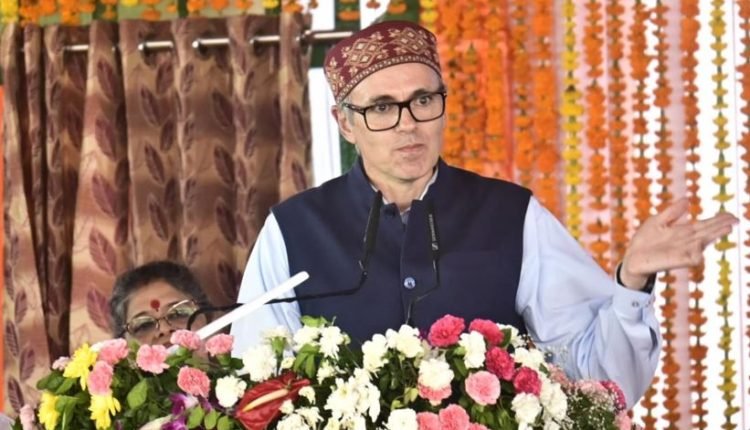J&K’s Fiscal Health Under Pressure: GST Rate Revision to Cost J&K Up to ₹1,000 Crore, Warns Omar Abdullah at FICCI Meet
“A Thousand-Crore Hit Is No Small Loss”: Omar Abdullah on GST Impact in Jammu & Kashmir
Srinagar, Oct 14: The revision of Goods and Services Tax (GST) rates is likely to cause a significant shortfall in Jammu and Kashmir’s tax revenue, with potential losses estimated between Rs 900 crore and Rs 1,000 crore for the current fiscal year, Chief Minister Omar Abdullah said on Tuesday. Addressing the national executive meeting of the Federation of Indian Chambers of Commerce and Industry (FICCI) in Srinagar, Abdullah expressed concern over the financial implications of the GST restructuring, which he described as a major setback for an already resource-constrained Union Territory.
“For a region like Jammu and Kashmir, which operates under a fiscal deficit, a reduction of nearly Rs 1,000 crore in tax collection is extremely substantial. This shortfall will inevitably strain our developmental priorities and welfare spending,” he said. The Chief Minister emphasized that the cumulative impact of recent economic disruptions, including natural disasters and security incidents, had placed extraordinary pressure on the Union Territory’s fragile economy.
He noted that the torrential rains and flash floods that battered parts of Jammu and Kashmir between July and September had severely damaged agricultural and horticultural output, the backbone of the region’s rural economy. “The incessant rains have caused major losses to fruit growers, particularly in the apple and walnut sectors, which play a pivotal role in sustaining our rural livelihood structure. The agriculture and horticulture sectors have taken a heavy hit, and recovery will take time,” Abdullah remarked.
The Chief Minister also reflected on the broader psychological and economic impact of the Pahalgam terror attack earlier this year, calling it a major setback not just for the tourism industry but for the collective sense of safety and stability in the region. “The Pahalgam incident was not only a blow to the image of Jammu and Kashmir as a peaceful travel destination but also affected how we see ourselves as a community recovering from decades of uncertainty,” he said.
Despite the setbacks, Abdullah expressed cautious optimism about the path ahead. “Jammu and Kashmir has always shown resilience. When things are good here, they are extraordinarily good, and when they are bad, they hit hard. I will not say we are at our lowest, but we certainly came very close earlier this year. Fortunately, the direction now appears to be improving, and we are taking steps to restore stability,” he stated.
The Chief Minister underscored the importance of sustained collaboration between the government and the business community to rebuild investor confidence and strengthen economic recovery. He called on FICCI and other national industry bodies to play a proactive role in promoting tourism, facilitating industrial investment, and supporting small and medium enterprises across the Union Territory.
Abdullah concluded by reaffirming his government’s commitment to fiscal discipline, transparent governance, and targeted relief measures for the sectors most affected by recent challenges. “It will take both time and collective effort to bring Jammu and Kashmir back to its pre-crisis momentum. But with policy clarity, partnership, and perseverance, we can rebuild stronger and more sustainably,” he said.




